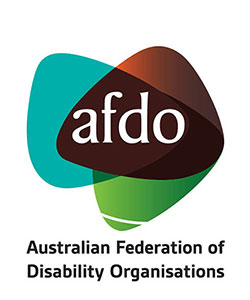Dear Kaz Cooke,
RE: Portrayal of Down syndrome in “Up the Duff”
I am writing to you as CEO of Down Syndrome Australia on behalf of the Down syndrome community. I was incredibly disappointed and alarmed by the portrayal of Down syndrome in the recently released 2020 edition of Up the Duff. It is my hope that we can work together to address the concerns raised below.
Down Syndrome Australia works hard to address the stigma and discrimination experienced by people with Down syndrome. It is incredibly disappointing that a resource such as Up the Duff which is so widely utilised and respected provides such a level of misinformation about Down syndrome.
Prospective parents in Australia are already struggling to get accurate information about Down syndrome and prenatal screening. In 2017 a survey was conducted by Down Syndrome Australia and it found that of those who responded, more than a third of women who had a pregnancy with a prenatal diagnosis of Down syndrome felt pressure from medical professionals to terminate the pregnancy.
Down Syndrome Australia respects the rights of women to make decisions about their pregnancies. Informed decision-making following an unexpected screening result is only possible if up-to-date, balanced and accurate information is available about all conditions being screened for including Down syndrome. What is presented to the reader within the current edition of Up the Duff fails to support informed decision-making. This is incredibly disappointing.
More broadly, the misinformation contained in this edition of Up The Duff about life with Down syndrome perpetuates out-dated stereotypes. These are hurtful towards people with Down syndrome and those who love them.
There are many reasons for concern after reading this publication which are outlined below:
The portrayal of Down syndrome throughout the book is inaccurate and propagates negative stereotypes. The suggestion that “a child with Down syndrome will have a serious mental disability” is at best a very outdated way of discussing an intellectual disability and at worst purely biased and inaccurate information. There is no discussion of the fact that most children with Down syndrome are included and valued in their communities or that the vast majority of people with Down syndrome report having a high quality of life.
The use of the term “risk” to describe likelihood of a diagnosis of Down syndrome, is inappropriate and outdated. In 2016, Tasmania's Anti-Discrimination Commissioner found the use of negative language in a Down syndrome diagnosis could breach the Anti-Discrimination Act. It has prompted a change in the national guidelines for prenatal testing. The Royal Australian and New Zealand College of Obstetricians and Gynaecologists guidelines now point to more neutral terminology like "chance" or "probability".
The discussion of termination does not provide balanced information. The statement that “the quality of life of a person with Down syndrome is hard to predict” is not a useful statement, the quality of any baby’s life before it is born is unpredictable. There is research evidence that suggests that most people with Down syndrome have a very high quality of life. This is omitted in your book.
You do not provide information about the supports and information that is available in Australia. The reference to Down Syndrome Australia and the support our federation provides is limited to a link to a website saying that we are “a lobby and support site for parents of children with Down syndrome”. This is not the most accurate description of the work that we do. Down Syndrome Australia is the peak organisation for people with Down syndrome in Australia. We are part of the Down Syndrome Federation who support people with Down syndrome and their families. Our State and Territory organisations often meet with families who have received high chance results and provide balanced information and an opportunity to meet other families.
The description of Non-Invasive Prenatal Test (NIPT) does not provide essential information about the accuracy of this test. More specifically, your book does not include any explanation of the issues around positive predictive value. The Positive Predictive Value (PPV) of the test refers to how likely it is that individuals who test positive are to be affected by the condition. PPV depends not only on test performance but also on the prevalence of the condition in the population studied. For example, if a woman has a pre-test likelihood of Down syndrome of 1 in 2000, then the likelihood that a positive result from NIPT is a true positive is only around 55%. Information about PVV is often not shared with families, and inaccurate presumptions are made that a high chance result is likely to be a true result 99% of the time.
We are incredibly disappointed by the biased and inaccurate information available in this edition of Up the Duff. As it stands, this edition of Up the Duff contributes to a culture of misinformation, stereotypes and discrimination which negatively impacts the Down syndrome community while making it difficult for women to make informed decisions.
I have attached Down Syndrome Australia’s position on pre-natal screening for your information and I would welcome the opportunity to speak with you about our current work in the area of pre-natal screening as well as the concerns I have raised about the book.
Down Syndrome Australia would be open to partnering with you to ensure information about Down syndrome and pre-natal screening is updated in future editions.
I urge you to publicly apologise to the Down syndrome community and acknowledge the errors in this edition of Up the Duff. I ask that you commit to offering accurate, balanced and up-to-date information about Down syndrome in future editions.
Kind Regards,
Ellen Skladzien
CEO Down Syndrome Australia
A 18/71 Victoria Crescent, Abbotsford VIC 3067 | E info@downsyndrome.org.au | P 1300 881 935 W www.downsyndrome.org.au.
You can read the letter here in PDF and Word format:
Open letter to the author of Up the Duff (PDF)
Open letter to the author of Up the Duff (Word)



